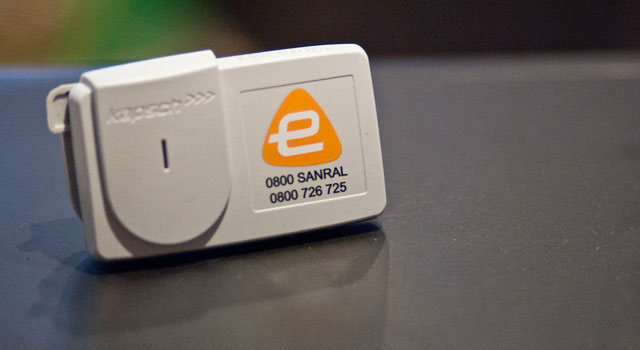
Roads agency Sanral on Tuesday tore strips off the Organisation Undoing Tax Abuse (Outa), accusing the lobby group of making statements and claims that are both defamatory and actionable.
In a statement issued on Tuesday, Sanral lashed out at suggestions that the e-tolls project in Gauteng was corrupt.
“In a recently published ‘research report’, Outa has suggested that Sanral is corrupt and incompetent and has colluded with the construction industry,” Sanral spokesman Vusi Mona said in the statement.
“To suggest that Sanral’s conduct falls within the same category as the widely reported and now conceded collusion that occurred within the construction industry is defamatory and actionable.”
Mona added: “Outa incorrectly assumes and presumably derives comfort from the fact that it presents itself as an organisation which ostensibly operates in the public interest. It presumably assumes that its representatives are immune from the consequences of its actions. Outa’s assertions in the report have been recklessly advanced.”
Sanral said it had asked Outa to provide “all information, including detailed engineering reports, research and financial calculations”, on which allegations contained in a recently published report are based.
It said Outa was asked to respond by 6 April, but failed to do so. “We have not yet received the information requested,” said Mona.
In a sign that the war of words between Sanral and Outa is set to intensify, Mona said that “perceptions created by Outa”, that Sanral was involved in recent collusive practices with the construction industry, “cannot be left unchallenged … because they are misleading the public, the media and current and potential investors”.
“In terms of Outa’s own mandate, it has a responsibility towards the public to provide the factual basis for its allegations. It has persistently failed to do so. It is self-servingly misrepresenting the position in support of its stance that the public should ignore civil summonses,” Mona added.
He said Sanral has sent Outa a list of “hundreds of questions” based on the organisation’s 29-page “position paper”.
Alex van Niekerk, project manager for the Gauteng Freeway Improvement Project (GFIP), said Outa’s document can be dismissed as it contains many factual inaccuracies.
For example, he said, many of the case studies used by Outa in its report compare rural roads in Africa and elsewhere in the world with the modern Gauteng freeways.
“These inherently defective comparisons were utilised by Outa to support its fatally flawed conclusion that Sanral has been overcharged by 321% for the construction of the GFIP,” it said.
Van Niekerk said Outa quoted “regional planners,” “engineers” and “research teams”, without naming them or detailing their qualifications.
“They refer to ‘benchmark studies’ and ‘generic models’ without indicating their relevance in the South African context. Outa also fails to take into account many of the elements of the GFIP such as the costs of retaining walls, drainage structures and the relocation of existing services such as power lines and pipelines,” he said.
“The GFIP is a much-needed multiphase project to upgrade the Gauteng freeway network. Only the first phase has been completed. The expanded freeway had to be constructed to address a 20-year backlog. The GFIP freeway network currently carries more than 800 000 vehicles and in excess of a million persons each day [and] remains an integral part of the transport solution for the Gauteng province.”
Sanral said that without a sustainable financing mechanism to construct the more than 150km of planned new freeways in Gauteng, the province’s economy will be negatively affected as will the quality of life of the commuting public.
“Outa reached its conclusion before doing its research and millions of commuters are making their decision to pay e-tolls based on false findings,” Mona said. — © 2016 NewsCentral Media




